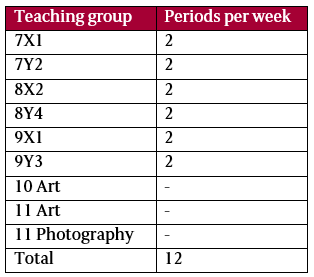 Still not convinced that non-Ebacc subjects are facing cuts? The current Ebacc consultation shows less extreme proposals – but they still risk a narrower and less attractive offer, for both GCSE and A-level. Bill Watkin explores the implications.
Still not convinced that non-Ebacc subjects are facing cuts? The current Ebacc consultation shows less extreme proposals – but they still risk a narrower and less attractive offer, for both GCSE and A-level. Bill Watkin explores the implications.
The Ebacc consultation has another three weeks to run and I hope that you will be responding. What is proposed in the consultation is much more sensible than the original announcements made immediately after the General Election in May 2015.
‘Compulsory for all’ and ‘No Ofsted outstanding’ have been modified – quite rightly.
- The DfE is now talking about an aspirational target of 90% entering the Ebacc ‘in time’.
- Ofsted judgements will not be tied directly to a school’s Ebacc entries.
- It will be the school, rather than the government, that will identify pupils who should be exempt.
That all makes perfect sense. The Ebacc is an aspirational curriculum; it has at its heart the intention to raise standards for all and to make sure that all young people can enjoy a demanding curriculum whatever their background. I have never met a school leader or teacher who does not share these values and ambitions. But…
Why the Ebacc? Why not Progress 8?
There are many different views of Progress 8. Personally, I see it as a useful development in the debate about measuring performance in schools. Not just because it concentrates on progress rather than attainment, so that vulnerable schools and low ability cohorts are properly recognised for their work and are not swimming against an attainment tide with their hands tied behind their back.
But also because it contains all the aspiration and ambition of the Ebacc, but with a layer of added flexibility for pupils who want to fly in other curriculum disciplines too.
Progress 8 contains all the aspiration and ambition of the Ebacc, but with a layer of added flexibility for pupils who want to fly in other curriculum disciplines too
Since it is too early to understand properly the impact that Progress 8 will have, it may well be better to see it fully implemented before narrowing the focus even further by focussing on the Ebacc.
And, by the way, I have to confess that the perception of geography has not always been that it is a demanding and rigorous academic subject. I can remember a time when geography was the pathway promoted to less able and less engaged pupils; not exactly a sink subject (!), but certainly not in the ‘top tier’ of disciplines… Not a view I shared, but certainly one I encountered.
What about non-Ebacc subjects?
And should you be in any way uncertain about the impact of a focus on the Ebacc on other subjects, perhaps the following illustration might clarify the big issues – cuts to other subjects; staffing; and cost inefficiency.
Let’s assume a KS4 cohort of 200 students following a 25-period week (5 periods per day in a 5 day week). Some subjects are compulsory and some are optional, as is always the case.
Here is a possible curriculum for GCSE students for whom the Ebacc is not compulsory (NB, a typical allocation would be c.10% of curriculum time for each GCSE).
Without Ebacc

*the list of 24 subjects from which students choose 3 might include: French, German, history, geography, business studies, RE, PE, cookery, resistant materials, graphics, electronics, engineering, art, photography, music, drama, hair and beauty, health and social care, travel and tourism, computer science, Latin, law, media studies, dance.
With Ebacc
Now here is the same curriculum, but adapted because the Ebacc is compulsory; only the parts in red have changed:

Please draw a red line through the 16 subjects from the list below that you will cut from the timetable. You have no alternative. You must do this:
French, German, history, geography, business studies, RE, PE, cookery, resistant materials, graphics, electronics, engineering, art, photography, music, drama, hair and beauty, health and social care, travel and tourism, computer science, Latin, law, media studies, dance.
Ebacc as currently proposed would require a typical school to cut the options offered from 24 subjects to 8
And what about teachers?
Let’s assume that of the 25 periods per week, a classroom practitioner teaches 21 periods.
These might be made up of:
Without Ebacc

With Ebacc (unfortunately, we had to cut art and photography from the options list)

Now we have an under-used art teacher and the consequence is that
- We need to employ more part-time teachers, or
- We need to ask the art teacher to help out by teaching product design or cookery, or
- We need to cut the Y7-Y9 classes, take art off the timetable altogether and make the art teacher redundant; this means that we can afford to employ a history teacher to pick up the new compulsory history classes.
And we will need to remove the same subjects at A-level, of course…
Finally, we will need to change the A-level curriculum. Not many A-levels can be taught ab initio, so those 16 subjects that have been cut from KS4 must also be removed from the A-level offer.
This will mean a much narrower and less attractive offer. Further, the more fragile schools, perhaps with newly established sixth form provision, will be hit hard as their growth strategy is affected.
